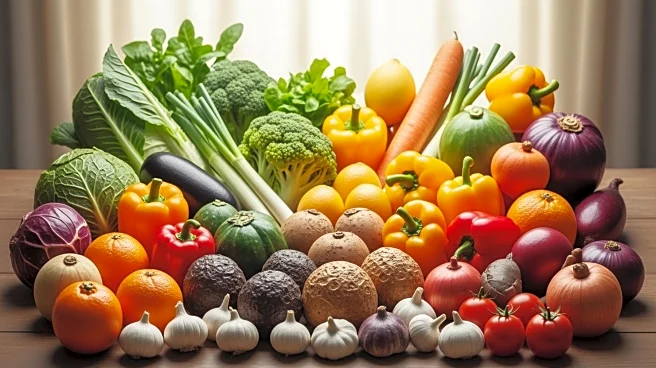What's Happening?
Muhammad Ibrahim, a Guyanese agronomist with extensive experience in international management, has been elected as the Director General of the Inter-American Institute for Cooperation on Agriculture (IICA)
for the 2026-2030 term. Ibrahim was elected with an absolute majority of votes from the ministers of agriculture of the Americas during a meeting in Brasilia. He will assume office on January 15th, succeeding Argentinian Manuel Otero. Ibrahim has pledged to prioritize the incorporation of science, technology, and innovation to address challenges faced by countries and farmers. He aims to foster investments to transform agrifood systems and improve the economic viability of agricultural enterprises and small farmers.
Why It's Important?
Ibrahim's election is significant as it highlights a shift towards prioritizing inclusion and diversity in agricultural policies across the Americas. His focus on science and technology could lead to advancements in agrifood systems, potentially increasing productivity and sustainability. This approach may benefit small farmers and agricultural enterprises by improving their economic and financial viability. Ibrahim's leadership could also strengthen partnerships and mobilize resources, addressing fragmented agrifood systems and environmental threats. His experience and vision could position IICA as a benchmark institution in agricultural cooperation.
What's Next?
Ibrahim will officially take office on January 15th, 2026. His leadership is expected to bring new strategies to tackle agricultural challenges, including environmental threats and trade issues. Stakeholders in the agricultural sector may anticipate increased collaboration and investment opportunities. Ibrahim's focus on modern tools and innovation could lead to significant changes in agricultural practices and policies, potentially influencing global agricultural trends.
Beyond the Headlines
Ibrahim's election may have broader implications for international agricultural cooperation, potentially influencing policies beyond the Americas. His emphasis on diversity and inclusion could inspire similar approaches in other regions, promoting equitable agricultural development. The integration of technology and innovation in agriculture may also contribute to global efforts in addressing food security and environmental sustainability.









